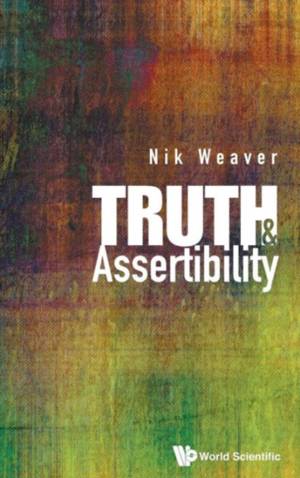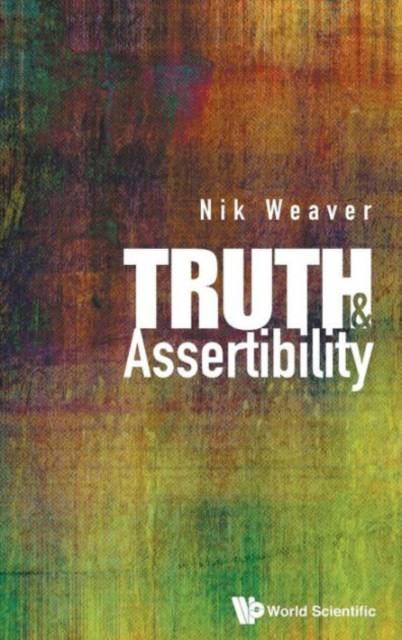
Door een staking bij bpost kan je online bestelling op dit moment iets langer onderweg zijn dan voorzien. Dringend iets nodig? Onze winkels ontvangen jou met open armen!
- Afhalen na 1 uur in een winkel met voorraad
- Gratis thuislevering in België vanaf € 30
- Ruim aanbod met 7 miljoen producten
Door een staking bij bpost kan je online bestelling op dit moment iets langer onderweg zijn dan voorzien. Dringend iets nodig? Onze winkels ontvangen jou met open armen!
- Afhalen na 1 uur in een winkel met voorraad
- Gratis thuislevering in België vanaf € 30
- Ruim aanbod met 7 miljoen producten
Zoeken
Omschrijving
The book is a research monograph on the notions of truth and assertibility as they relate to the foundations of mathematics. It is aimed at a general mathematical and philosophical audience. The central novelty is an axiomatic treatment of the concept of assertibility. This provides us with a device that can be used to handle difficulties that have plagued philosophical logic for over a century. Two examples relate to Frege's formulation of second-order logic and Tarski's characterization of truth predicates for formal languages. Both are widely recognized as fundamental advances, but both are also seen as being seriously flawed: Frege's system, as Russell showed, is inconsistent, and Tarski's definition fails to capture the compositionality of truth. A formal assertibility predicate can be used to repair both problems. The repairs are technically interesting and conceptually compelling. The approach in this book will be of interest not only for the uses the author has put it to, but also as a flexible tool that may have many more applications in logic and the foundations of mathematics.
Specificaties
Betrokkenen
- Auteur(s):
- Uitgeverij:
Inhoud
- Aantal bladzijden:
- 204
- Taal:
- Engels
Eigenschappen
- Productcode (EAN):
- 9789814619950
- Verschijningsdatum:
- 6/05/2015
- Uitvoering:
- Hardcover
- Formaat:
- Genaaid
- Afmetingen:
- 152 mm x 229 mm
- Gewicht:
- 444 g

Alleen bij Standaard Boekhandel
+ 299 punten op je klantenkaart van Standaard Boekhandel
Beoordelingen
We publiceren alleen reviews die voldoen aan de voorwaarden voor reviews. Bekijk onze voorwaarden voor reviews.











